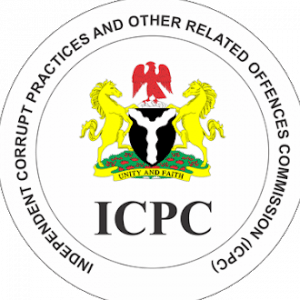President Bola Tinubu says his administration is committed to building a Nigeria where every citizen’s identity is secure, trusted, and recognised across all platforms.
Tinubu spoke on Tuesday in Abuja at the 2025 National Day of Identity.
The event was themed, ‘Public Key Infrastructure (PKI): Backbone to Digital Public Infrastructure’.

Tinubu said the celebration was not only to mark progress but to recommit to building a Nigeria where “every citizen’s identity is recognised, verifiable, and protected”.
He described identity as the foundation of citizenship and the “gateway to opportunity,” adding that this year reflects Nigeria’s drive to anchor its digital ecosystem on trust.
“The National Identity Number (NIN) is not merely an administrative number. It is the common key that unlocks opportunity, strengthens governance, and builds trust,” Tinubu said.
“Without PKI, digital interactions remain vulnerable. But with it, Nigeria can build an ecosystem where trust is guaranteed, fraud is reduced, services are streamlined, and every citizen can engage with government and private institutions with confidence.”
Tinubu also commended the National Identity Management Commission (NIMC), led by Abisoye Coker-Odusote as the director general (DG) and chief executive officer (CEO), for innovations such as the NINAUTH system, diaspora enrolment platforms, and the ward-level initiative using National Youth Service Corp (NYSC) members.
He highlighted integration with the bank verification number (BVN), health insurance, pension administration, social welfare, and even security services, as proof of identity’s role in national transformation.
The president noted that over 126 million Nigerians have now been enrolled in the national database, which he said translates to “126 million stories of visibility, empowerment, and inclusion”.
In addition, Tinubu said the NIN is now critical to financial services, pensions, health insurance, social investment programmes, security operations, SIM registration, and transport regulation.
‘NATIONAL DATABASE EXPANDED’
In her remarks, Coker-Odusote said NIMC had expanded the national database capacity from 100 million to 250 million records while deploying over 1,500 enrolment devices nationwide and more than 200 diaspora centres.
She outlined progress in three pillars, including inclusion, protection, and empowerment, noting that the NIN is now integrated with birth registration, the social register, correctional services, and diaspora platforms.
The NIMC’s director general said over 449,000 students have so far accessed loans through the Nigerian Education Loan Fund (NELFUND), using their NIN, while the agriculture ministry has linked identity data to the distribution of subsidised food commodities.
On data security, the NIMC DG dismissed rumours of database breaches, insisting the system remains intact.
She said the commission is working with the police cybercrime unit, banks, and telecommunications operators to protect citizens against identity theft and fraud.
“As we reflect on the progress in inclusion, protection, and empowerment, it is clear that the NIN, supported by PKI, is more than just a number — it is a gateway to opportunity, security, and dignity for every Nigerian,” she said.
On his part, Olubunmi Tunji-Ojo, minister of interior, said Nigeria must treat identity systems as “strategic national infrastructure” if it is to achieve global digital standards and unlock economic opportunities.
Tunji-Ojo said PKI is the backbone of secure digital services, describing it as “the difference between digital convenience and digital risk”.
Additionally, the minister outlined five pillars to guide Nigeria’s digital transformation: governance and legal clarity, resilient technical standards, interoperability, local capacity building, and privacy.
“A credible PKI and digital public infrastructure rest on law and accountable institutions,” he said.
“Our PKI must be built on tested international standards and managed with transparency, so that Nigerian certificates and signatures are recognised across borders.”
Tunji-Ojo called on banks, technology firms, and development partners to support the government’s digital trust framework.
The minister said the investments “we make today in PKI, data centres, and secure enrollment will be the collateral for Nigeria’s digital economy tomorrow”.
Stay ahead with the latest updates!
Join The Podium Media on WhatsApp for real-time news alerts, breaking stories, and exclusive content delivered straight to your phone. Don’t miss a headline — subscribe now!
Chat with Us on WhatsApp







